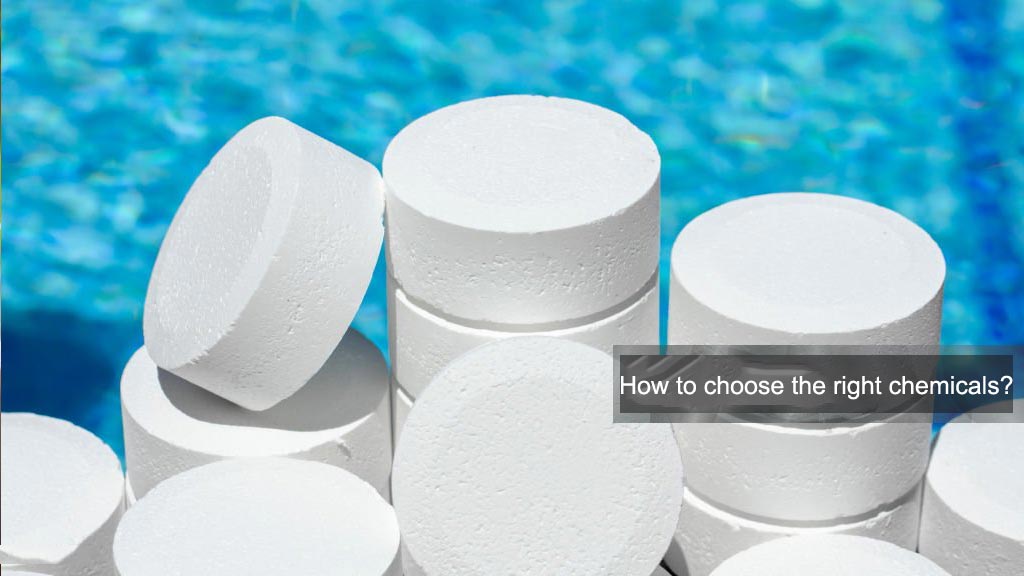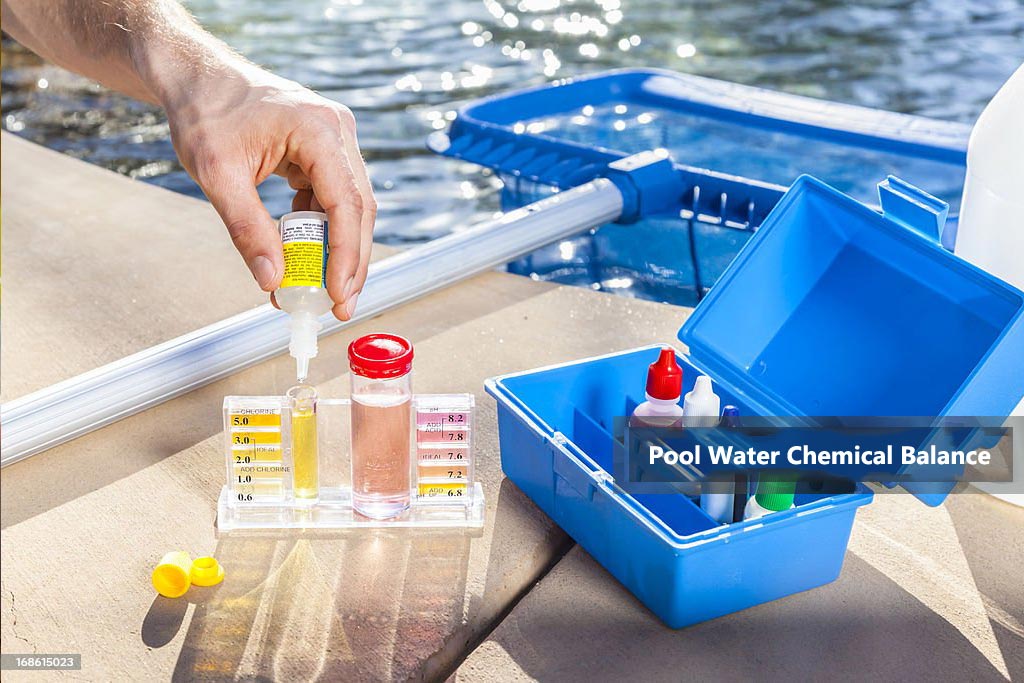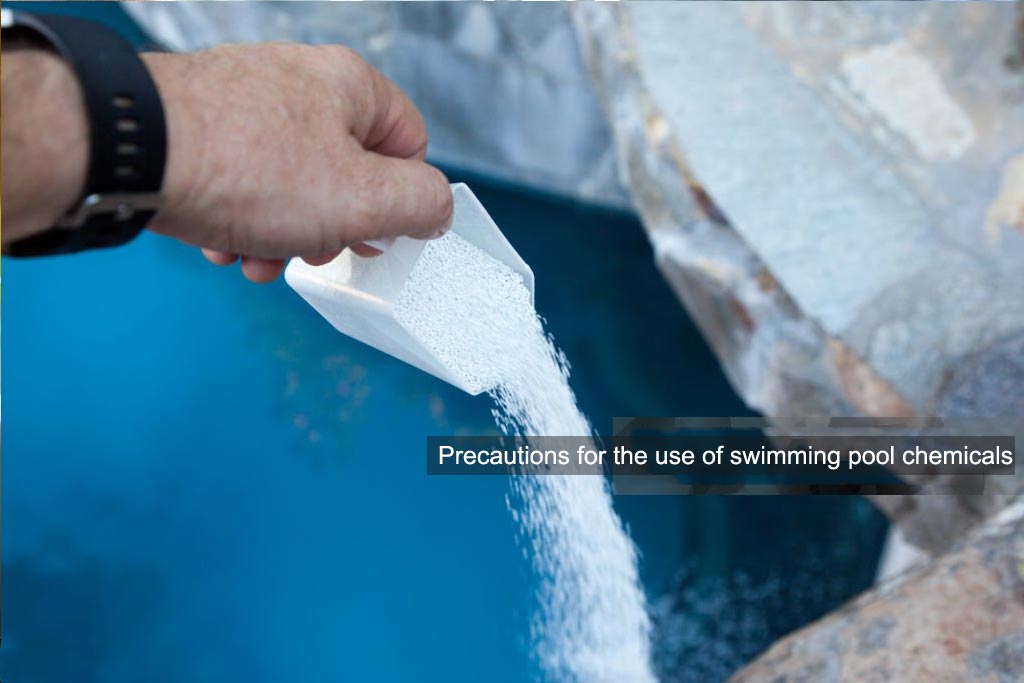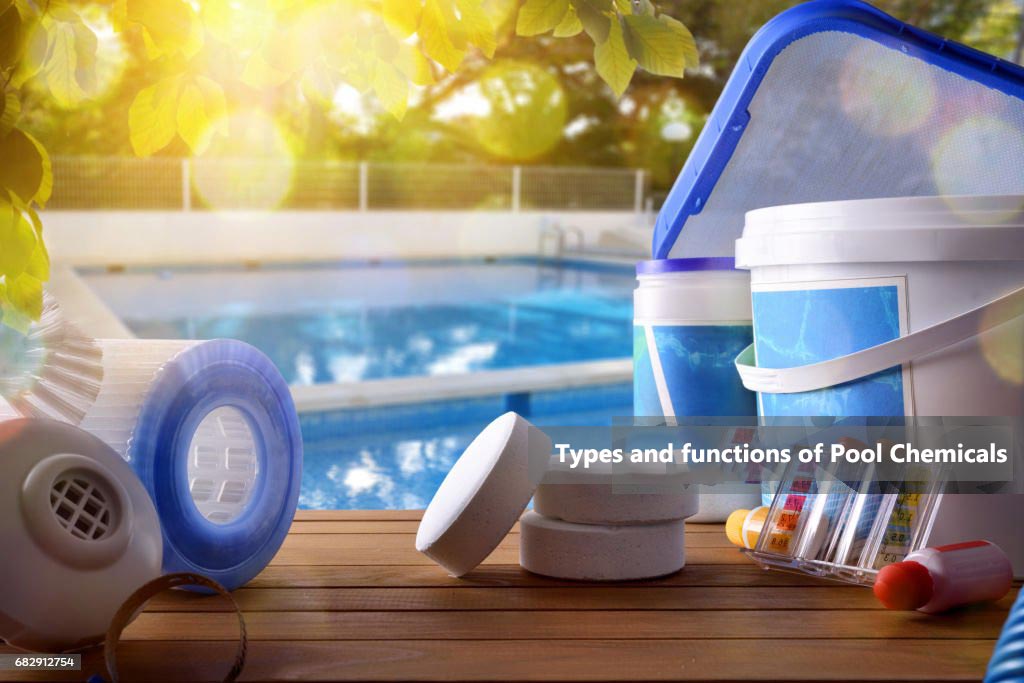With the development of the times, swimming has become a more popular form of exercise. Swimming pools can be seen everywhere. However, if you do not pay attention to the maintenance of pool water quality, it may bring health risks. The safety of pool water depends largely on the correct selection and use of chemicals.
There are many types of pool chemicals, which are mainly divided into the following categories:
Disinfectant: Chlorine is the most commonly used disinfectant, which can effectively kill bacteria, viruses and other microorganisms. Generally, common chlorine disinfectants are: sodium dichloroisocyanurate, trichloroisocyanuric acid, and calcium hypochlorite. More traditional chlorine disinfectants also include bleach (sodium hypochlorite).
pH adjuster: pH is an indicator of the acidity and alkalinity of aqueous solutions. The pH value of pool water should be kept between 7.2-7.8. Too high or too low will affect the disinfection effect and cause damage to pool equipment. Commonly used pH adjusters include sodium carbonate, hydrochloric acid, sodium bisulfate, etc.
Flocculant: Flocculant can make tiny particles in the water condense into large particles, which are easy to filter and remove, making the water clear and transparent.
Algaecide: Algaecide can effectively inhibit the growth of algae and prevent the water from turning green.
Stabilizer (cyanuric acid): Stabilizer can protect the disinfectant and make it difficult to decompose in the sun, thereby prolonging the disinfection effect. (Generally, if calcium hypochlorite is used as a disinfectant, it needs to be added additionally. When using TCCA or SDIC, no additional addition is required.)

How to choose the right chemicals?
When choosing pool chemicals, consider the following factors:
Pool type
Different types of pools, such as above-ground pools, underground pools, and indoor pools, have different requirements for chemicals.
If it is an outdoor pool: When choosing a chlorine disinfectant, you should pay attention to choosing stabilized chlorine,, i.e., sodium dichloroisocyanurate or trichloroisocyanuric acid. If you have an above-ground pool or a smaller pool, it is recommended to use sodium dichloroisocyanurate. The advantages are that it dissolves quickly, contains a chlorine stabilizer, and has a moderate pH value. If it is a large pool, it is recommended to use trichloroisocyanuric acid tablets with feeders. However, if calcium hypochlorite is used as a disinfectant in an outdoor pool, it must be used with cyanuric acid to stabilize the chlorine in the water.
If it is an indoor pool, in addition to dichloro and trichloro, you can also choose calcium hypochlorite. But pay attention to the calcium hardness of the water when using it.
Water quality
The local water quality (hardness, mineral content) will affect the chemical requirements.
When your raw water hardness is too high or too low, the first thing to do is to adjust the calcium hardness of the water to the range between 60-180ppm. If the calcium hardness is too low, add calcium chloride. If the calcium hardness is too high, use a descaling agent. When the calcium hardness of the raw water is too high, it is recommended to choose dichlor or trichlor when choosing a disinfectant. For well water, the iron and manganese content needs to be tested to avoid coloration and precipitation.
Climate conditions
Climate conditions such as temperature and humidity will affect the change of water quality, and the amount of chemicals needs to be adjusted. Hot, sunny climates promote algae growth and require more algaecides.
Frequency of pool use
The more frequently the pool is used, the greater the consumption of chemicals.

Before starting, please test the pH value, calcium hardness, total alkalinity and other indicators of your pool water, and add corresponding chemical reagents according to the values of the indicators. Adjust these indicators to the normal range.
pH adjuster:
Keep the pH value between 7.2 and 7.8 for the best disinfection effect and swimmer comfort.
Type: pH increaser (alkaline, Sodium Carbonate) or pH reducer (acidic, Sodium Bisulfate).
Total alkalinity adjuster:
The ideal range is 80-100 mg/L.
When TA is too low, you can use sodium bicarbonate; when TA is too high, you can use sodium bisulfate or hydrochloric acid for neutralization.
Calcium hardness regulator:
When your calcium hardness is lower than 150ppm (normal range 150-1000ppm), you need to add calcium chloride. If the hardness is too high, add a descaling agent to remove excess calcium in the water.

Precautions for the use of swimming pool chemicals
Strictly follow the instructions: The use and dosage of chemicals of different brands may be different. Be sure to read the instructions carefully and strictly follow the instructions.
Pay attention to safety protection: When using chemicals, be sure to wear protective gloves, masks, and other protective equipment to avoid skin and eye contact with chemicals.
Test water quality regularly: Use water quality test kits or instruments to test water quality regularly, and adjust the dosage of chemicals according to the test results.
Store chemicals properly: Store chemicals in a cool, dry, ventilated place, away from children and pets.
In addition to choosing the right chemicals, pay attention to the following points to avoid pool water pollution:
Keep the pool clean: Regularly clean up fallen leaves, insects and other debris in the pool.
Replace the filter element in time: The filter element is an important component for filtering impurities in the water and should be replaced regularly.
Avoid using skin care products, cosmetics, etc. in the swimming pool: The chemicals in these products will pollute the pool water.
It is forbidden to urinate and defecate in the swimming pool: Bacteria in feces will pollute the pool water.
The safety of swimming pool water is related to everyone's health. Choosing the right chemicals and using them correctly are the key to ensuring the safety of swimming pool water. In addition, it is also essential to maintain good hygiene habits and regularly maintain the pool. Before engaging in pool maintenance, fully understand the pool chemicals to ensure the safety of swimming.
[Expert advice]
Shower before swimming: Wash off sweat, grease, etc. on your body to reduce pollution to the pool water.
Don't swim immediately after eating: Swimming after eating is prone to cramps and other accidents.
Don't swim in thunderstorms: Thunderstorms are prone to electric shock accidents.
Post time: Sep-27-2024

